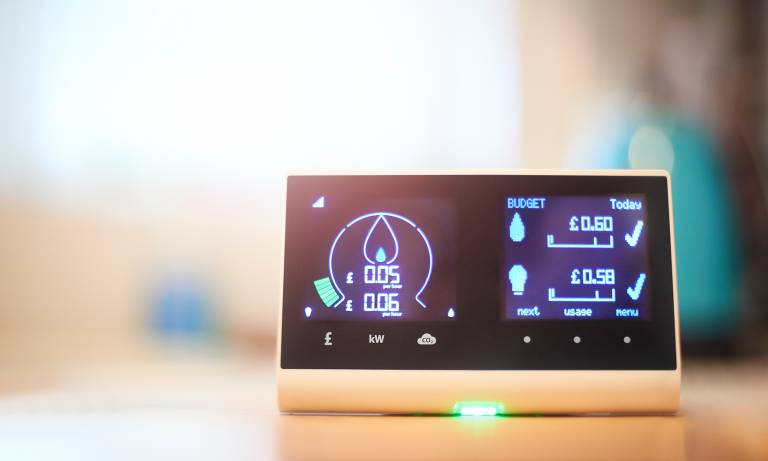Smart meters: what's the latest?
20 November 2017

With the House of Commons Public Bill Committee reviewing the evidence for the forthcoming Smart Meters Bill this week, obtaining good evidence to underpin smart meter policy is key to ensuring a successful roll out. Earlier this year, Sovacool et al published a paper in the journal Energy Policy directly on this topic that makes a series of claims about the roll out of smart meters. While much of the paper sets out interesting (if well-known) issues around smart meters, some parts of the article are potentially misleading if not understood within the context of the latest developments. To correct this, and to help readers understand the challenges in drawing wide-ranging conclusions from this important paper, three UCL experts on smart meters have drafted an open letter to the editor of the journal Energy Policy.
Key points that counter claims in the Sovacool et al paper include:
- The government Impact Assessments of the SMIP in 2014 and 2016 used appropriate estimates of energy saving in the Cost/Benefit analyses.
- A suite of measures has been developed and implemented to specifically assist vulnerable customers with the smart meter rollout.
- Robust cyber-security mechanisms have been developed to prevent hacking of smart meters and the smart meter system.
- Rural areas will be specifically supported, enabling 99% of GB householders to use smart meters.
- Consumers do not need to buy a new smart meter if switching – smart meters are installed at no additional cost to the consumer. Newer SMETS compliant meters will not need to be replaced when switching.
- Smart meters do not need fixed broadband lines – they can function purely with wireless communications.
- Thick walls and flats present a challenge to all wireless IT systems but there are strong plans in place to minimise these problems with smart meters.
- Smart meters cannot control other electronic devices in your home (although compliant devices can be linked to smart meters if consumers wish to do so).
Please find here both the original letter signed by Professor of Energy and the Built Environment David Shipworth, Senior Research Associate Simon Elam and Research Associate Dr Mike Fell - as well as the response by Professor of Energy Policy Benjamin K. Sovacool, Senior Research Fellow Paula Kivimaa, Research Fellow Sabine Hielscher and Research Fellow Kirsten Jenkins. We recommend that those interested read the original paper, as well as both letters to provide appropriate context.
There is no doubt that such a national programme to change the energy meters in over 27 million homes and 2 million small businesses is a huge challenge with many inherent issues to be resolved. Nevertheless, there are multiple benefits of such an investment, both to consumers and the overall UK energy system, if rolled out in the right way. Good research is central to getting it right.
 Close
Close

